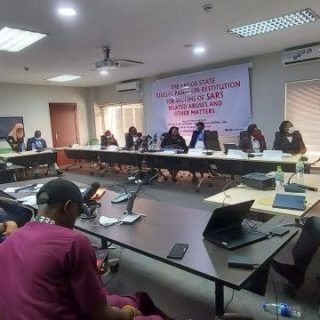Citizen is a column that explains how the government’s policies fucks citizens and how we can unfuck ourselves.
Okay, so this is the jab:
And then came the knockout:
Well, that meins, no more dollars to import maize, chicken feed, palm oil, or whatever. Every part of the food you eat must be sourced from Nigeria.

Now, asides from the fact that Buhari’s ‘direction’ clearly shows that the Central Bank of Nigeria under his Presidency is no more independent (if it ever was), the assumption that we have to completely stifle food imports to boost Agriculture in Nigeria is … besides the point.
Also, that the presence of “able bodied” young Nigerians on the farms will equate to more Agricultural yield is … meh.
The Netherlands for instance, has a population of roughly 17 million people (not up to the people in Lagos), and a land mass of roughly 41,543 sq Km (Nigeria’s is 923,768 sq Km). But the country is the second largest exporter of Agricultural produce in the world, and it made over $10 billion exporting flowers and $7.4 billion exporting vegetables in 2017 alone.
How? Smart work, not hard work. Innovation and smart policies over gra gra.
In fact, in most developed countries only 5% of the entire population work in the Agric sector, while two-thirds of the population in poor countries end up working in Agriculture. But developed countries still end up more productive in Agriculture than developing countries.
Look, don’t just take our word for it. Let’s get into the nitty-gritty of the things Buhari gets wrong about Agriculture in Nigeria:
1. 70 million Nigerians already work in Agriculture
According to recent World Bank estimates, 35% of Nigerians work in some form of Agriculture. That is around 70 million Nigerians. So we do already have enough people in Agriculture. It can’t be about the numbers again if 70 million out of 200 million people already engage in an occupation, in one form or another. Or can it?
2. Farmers still owe over N150 billion from the Anchor Borrowers Programme
The Government’s own Anchor Borrowers Programme, aimed at providing finance to Small Holder Farmers (SHFs) to purchase farm inputs still remains a source of controversy over repayment concerns.
Now, while providing loans for farmers is a great idea in theory, the practicalities of Agriculture in Nigeria still show that it is hard for farmers to turn a profit. Which takes us to the last point;
3. Nigeria’s Agro-Processing sub-sector is still way off mark
In June this year, the Federal Government announced plans to build 142 Agriculture processing centres, but that is exactly the point Nigeria is with regards to agro-processing. *Announcing plans*.
Essentially, Agriculture as an occupation is way different from Agriculture as a business. Until Nigeria works around the Agro-business by developing the Agro-processing sub-sector and building the infrastructure around it, including power and seamless transportation, we’ll have to keep going to farms, like the able-bodied people that we are.
Check back every weekday by 10am for more Zikoko Citizen stories.




